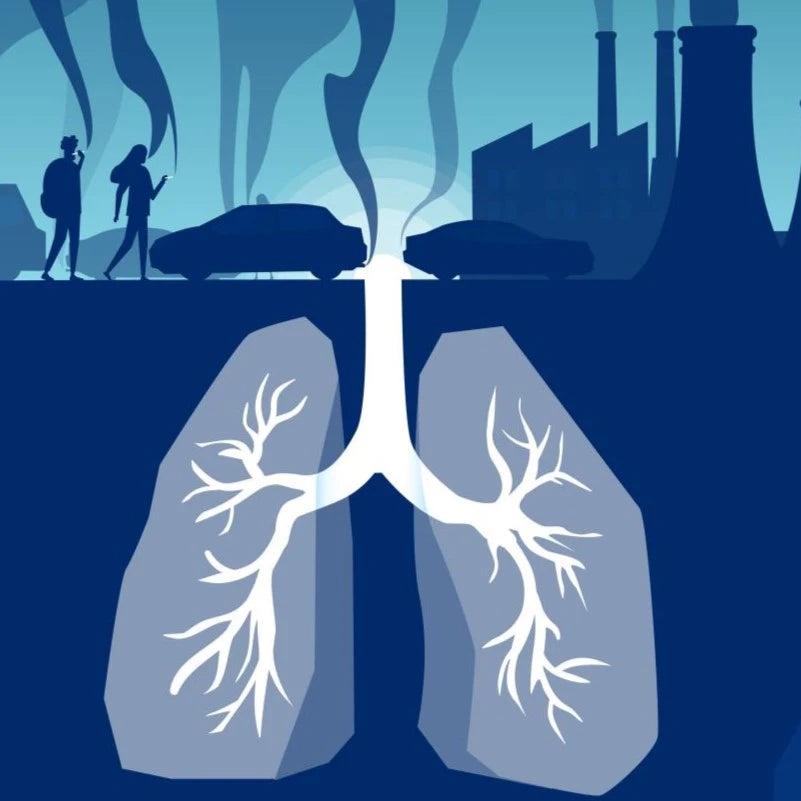Air pollution is an intricate blend of particles and gases discharged by myriad causes, including industrial processes, automobile exhaust fumes, and combusting fossil fuels. Long-term exposure to dirty atmospheres has been considered a reason for many severe health problems due to air pollution. In addition to the cardiovascular system effects of air contamination, heart diseases and strokes that make the heart conditions worse or even end in death are associated with chronic bronchitis and asthma as the main respiratory illnesses caused by atmosphere contamination. Besides, current scientific studies show that pollution can disturb mental well-being, thereby resulting in mental conditions ranging from depression to anxiety disorders. Therefore, people must understand the health effects of air pollution so that they can adopt appropriate measures aimed at reducing this exposure through personal choices and government policies on the environment.
Air Quality Measurement - The First Step to Health
A safe environment is very important when you need to maintain the quality of air inside and outside the building. When we do atmospheric pollution assessment systematically, there can be some preemptive ways to reduce air pollution, thereby reducing health hazards. Milerd provides an extensive array of property analyzers for indoor home and workplace atmospheres. These analyzers exactly sense pollutants such as particulate matter, volatile organic compounds (VOCs), and carbon monoxide, enabling accurate knowledge of the state of the indoor atmosphere.

Milerd’s air quality analyzers come with highly developed sensors and user-friendly interfaces that are easy for homeowners or professionals to use for regular monitoring. Users may be able to correct poor indoor atmosphere property by targeting sources of pollution as well as tracking variations over time. Well-informed decisions about how best to protect health are based on sound judgments made from dependable information about the atmosphere, e.g., whether it is making adjustments to ventilation systems, employing room-bound filters or reducing inside activities that produce pollutants.
Practical tips for reducing disease risks
To maintain good health, it is advisable for you to cut down on your exposure to dirty air. Here are some practical changes you can make in your lifestyle to how to control air pollution.
- Do not engage in outdoor activities during peak hours of contamination. Limit outdoor activities, especially when the atmosphere quality is poorest, typically around rush hour or on days with high contamination levels.
- Air purifiers should be used in these situations. Get HEPA filters or UV-C atmosphere purifiers that purify the indoor atmosphere and reduce exposure to contaminants.
- Ventilate. Ensure that enough fresh air flows through your homes and work areas to allow for proper atmosphere circulation and lower indoor contaminants.
- Choose clean commuting options. Walk, cycle, or use public means as opposed to personal vehicles, thereby cutting down emissions, particularly in highly populated urban areas.
- Follow AQI reports. Stay updated about local atmospheric property conditions by checking AQI reports regularly, which guide planning accordingly for a poor day’s air quality activities.

Other than modifying one’s way of living, it is good to have meals that contain plenty of antioxidants to curtail oxidative stress resulting from pollutants. Your diet should include fruits like strawberries, natural fats like walnuts, some vegetables such as spinach, and foods containing the vitamins C and E, which play a significant role in enhancing the body's protection mechanisms against environmental toxins.
It is important to note these practical tips to understand what does air pollution causes. By making them part of your daily activities, you will be able to reduce the amount of polluted air you are exposed to each day, thus minimizing the health risks that come with it.
Integrating Clean Air Solutions
Certainly, at the end of this, it is so obvious that being proactive in order to avoid a polluted atmosphere is very important. Hence, it is vital to institute measures enhancing both outdoor and indoor environments, as the quality of the atmosphere directly affects our well-being and health. Diseases caused by dirty air vary from respiratory problems like asthma or chronic bronchitis to cardiac conditions such as strokes or heart disease. Milerd has a range of solutions, including advanced air monitors, that enable consumers and companies to take control of their atmospheric contamination. Through such items, we can reduce the adverse effects caused by impurities, thereby creating healthier areas for living and working.
Check how clean your home's surrounding environment is. If that is not okay, then use the available instruments from the Milerd brand to enhance the situation.
If we care about our well-being and our surroundings, let’s start incorporating healthy, breathable solutions into our lives on an everyday basis.



Hinterlasse einen Kommentar
Diese Website ist durch hCaptcha geschützt und es gelten die allgemeinen Geschäftsbedingungen und Datenschutzbestimmungen von hCaptcha.